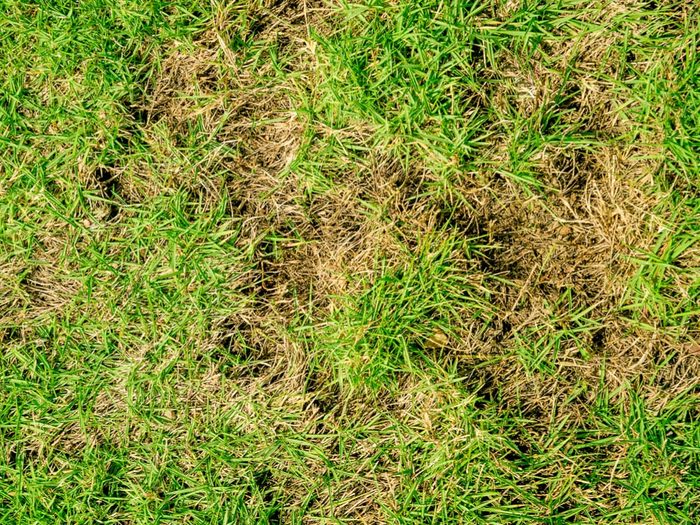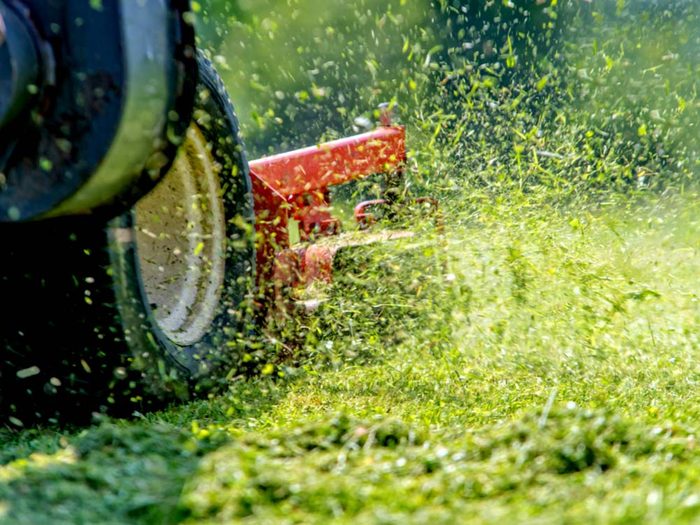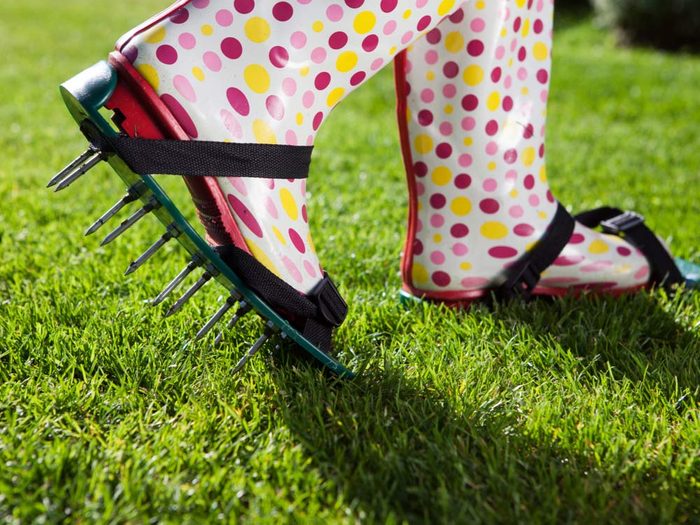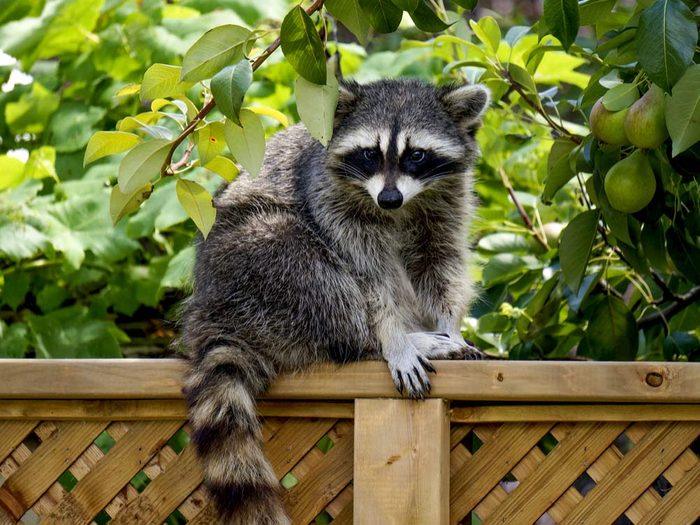
Build Up the Low Yellow Spots
The makers and sellers of pest and fungus treatments would love you to believe that every yellow or dead spot is the result of a sinister invader that can be eliminated with frequent use of their expensive products. But some yellow spots are simply the result of low spots in your lawn, especially if they appear after heavy rain. Grass can suffocate or rot in standing water. Try spreading a layer of compost over the yellow spot to raise it up to the level of the surrounding ground. Within a week or two, new grass will likely sprout to fill the patch.

Quit Bagging Grass Trimmings
If you have the kind of mower that shreds grass and drops it right back onto the lawn, you can reduce the recommended amount of lawn fertilizer by at least a third-and possibly even half. The salespeople at your garden center would tear their hair out if they knew you were onto this secret, but a mulching mower will save you having to spread pounds and pounds of chemical fertilizer every year.

Save a Bundle on Lawn Aeration
It seems that every year a swarm of eager workers roam around the neighbourhood posting handbills and ringing doorbells, insisting that you need to aerate your lawn-right now! If you don’t keep track, you might do it three or four times a year. Relax. Most lawns only need aerating once a year to improve the drainage and breathability of soil, and it’s important to do it at the right time for your area and grass type. Some grasses do better with aeration at the beginning of the growing season, and some prefer it at the end.
You don’t have to pay someone else an arm and a leg to do your aeration. It’s not rocket science, and it’s no more strenuous than mowing a lawn. Just be sure to mark your sprinkler heads and any buried cables first. Ask several of your neighbours if they’d like to go in on an aeration party, then chip in to rent a machine. You can hire the machines at hardware stores for half a day for about the same amount that you’d pay to have a single lawn aerated. You can take turns using the machine on each of your own lawns, or pay a strapping teenager to do them all in a morning. Either way, you’ll come out ahead.

Treat Your Lawn to a Healthy Tonic
You don’t have to pay big bucks to the fertilizer makers to spruce up your lawn with a shot of healthy nutrients. Many homeowners have had great success with homemade lawn “tonics” made from simple products that might already be on your pantry shelves. The recipes vary, but most share these common ingredients:
- 1 can non-light beer
- 1 can non-diet soda pop
- 1 cup ammonia
- 1 cup liquid dish soap
- 1 cup molasses or corn syrup
- 1/2 cup mouthwash
What do these ingredients have to do with promoting a healthy lawn? The beer, soda, and molasses stimulate beneficial microbes. The ammonia is a source of nitrates, the main ingredient in most fertilizers. The soap helps spread the solution evenly and bind it to the blades of grass. And the alcohol in mouthwash deters some pests. Mix these ingredients in the reservoir of a 38- or 76-litre hose-end sprayer, and apply it to your lawn every three weeks or so. Water well after application. Your lawn will be lusher and need less water, and the big oil companies that supply the raw materials for many fertilizers will have lost another customer.

Deter Lawn-Damaging Raccoons
If you wake up in the morning to discover small round holes in your lawn or even large patches of turf mysteriously rolled up, it is probably the work of raccoons or skunks, who visit at night and dig in search of worms, grubs, or other insects that live in your lawn. They are especially likely to show up after a rain, when the water forces their prey close to the surface. Some pest control experts would have you believe that the only viable solutions to this problem are expensive ones: installing a secure or electrified fence, setting out traps, or undertaking an elaborate grub-elimination program with toxic insecticides. But the solution is quite simple. Just go to the store and buy a couple of boxes of moth crystals and sprinkle them over your lawn. This will help persuade the raccoons, who have very sensitive noses, to dine elsewhere. Also, to avoid attracting them, make sure your garbage cans can’t be knocked over and have lids that are securely closed.